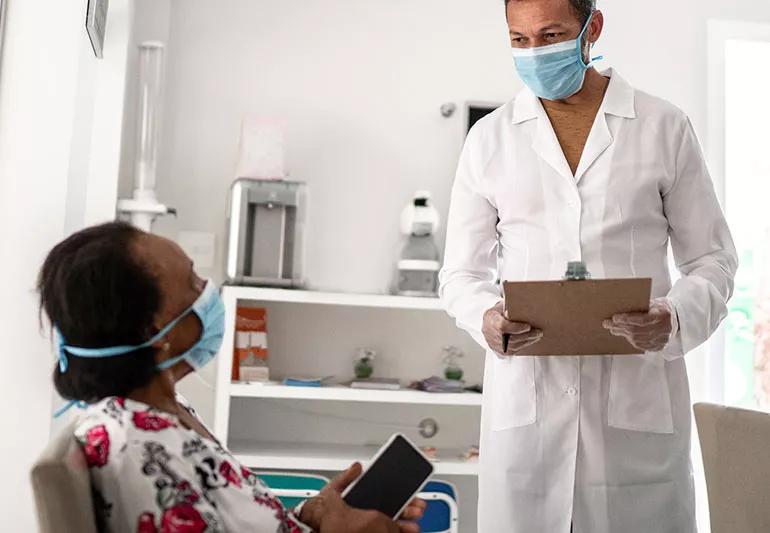Before agreeing to surgery, ask about cardiac risk

Many surgical procedures are very safe. But any type of surgery carries risks along with it.
Advertisement
Cleveland Clinic is a non-profit academic medical center. Advertising on our site helps support our mission. We do not endorse non-Cleveland Clinic products or services. Policy
In particular, doctors and surgeons want to find out about any potential heart or cardiovascular risks that you might have before deciding whether you are a good candidate for any kind of surgery.
Before you have any type of surgical procedure, it’s important to ask questions and to understand the answers to those questions. It’s also important to discuss the reason and urgency for surgery.
Cardiologist Maan Fares, MD, says that you, the patient, are an important part of any treatment. “Patients should consider themselves part of the team that evaluates the risk of any upcoming surgery.”
Associations such as the American College of Cardiology (ACC) and the American Heart Association (AHA) regularly publish and update guidelines that help physicians determine who is at cardiac risk for non-cardiac surgery.
Your primary care physicians can assess your risk factors.
“Most patients who need a surgical procedure should undergo an evaluation by their primary care physician,” he says. “If your doctor finds problems, or knows of an existing heart condition, they should refer the patient to a cardiologist for further investigation.”
In assessing surgical risks, your primary care doctor considers different factors, such as:
Advertisement
Your doctor will perform a physical exam and take notes on the details of your health history. You may also have testing such as a chest X-ray and blood work during this visit.
If there are any concerns about your heart health, your doctor will order an electrocardiogram (ECG). This looks at your heart’s electrical pulses and signals in detail.
Your doctor will ask you about any existing heart disease or about any other type of risk factors you might have. They will also check the results of the ECG. And of course, a physical exam will help uncover any physical abnormalities. These may include a heart murmur, irregular heart rhythm or a weak pulse.
If you have known heart disease such as coronary artery disease (CAD), heart valve disease or congestive heart failure or if you show new signs or symptoms that may suggest heart disease, your doctor should refer you to a cardiologist for further investigation. Your doctor may also talk to you about any medications you’re taking and if they may need to be interrupted.
Finally, anyone over the age of 50 should have an extensive assessment of their medical history and a thorough medical exam. This is because of the increased risk during surgery that comes with age.
“Your pre-operative appointments are very beneficial,” says Dr. Fares. “A pre-surgery evaluation is an ideal opportunity to evaluate the long-term treatment of a patient with significant cardiac disease or risk of disease.”
By asking questions and actively communicating with all members of your treatment team, you become your best health advocate. It’s important to also extend the conversation to your next of kin or family members when having a conversation regarding surgery. Also, you will ensure that you will have the best possible outcome before, during and after any surgical procedures.
Advertisement

Sign up for our Health Essentials emails for expert guidance on nutrition, fitness, sleep, skin care and more.
Learn more about our editorial process.
Advertisement

Your surgeon isn’t trying to be mean — eating before surgery can raise your risk of aspirating, vomiting and more

Keep the area clean and monitor your incision site for discharge, odor or a change in appearance

Follow these steps to improve your outcome

Strokes affect your brain, while heart attacks affect your heart — both can be life-threatening emergencies

It’s an emergency if the pain doesn’t go away, gets worse or you have other worrying symptoms

Age, sex and genetics are just a few factors that can affect your risk of developing coronary artery disease

You may notice a decrease in your LDL ‘bad’ cholesterol in about four weeks

Eating heart-healthy foods, moving around more and getting quality sleep are a few ways to get started

The tropical fruit is a good source of antioxidants and vitamin C

Most people fall asleep within 10 to 20 minutes, but if your experience is different, adjusting your sleep schedule may help

Exploring your hidden side can lead to better understanding of what makes you tick